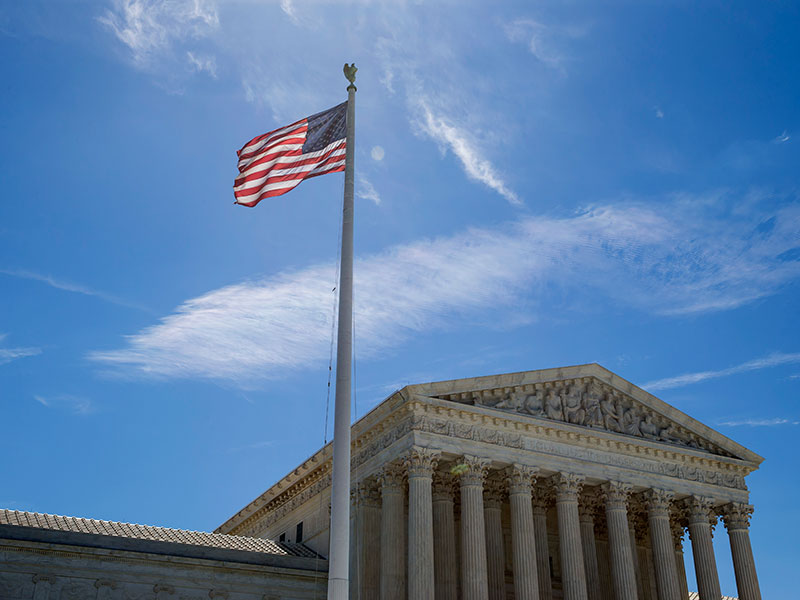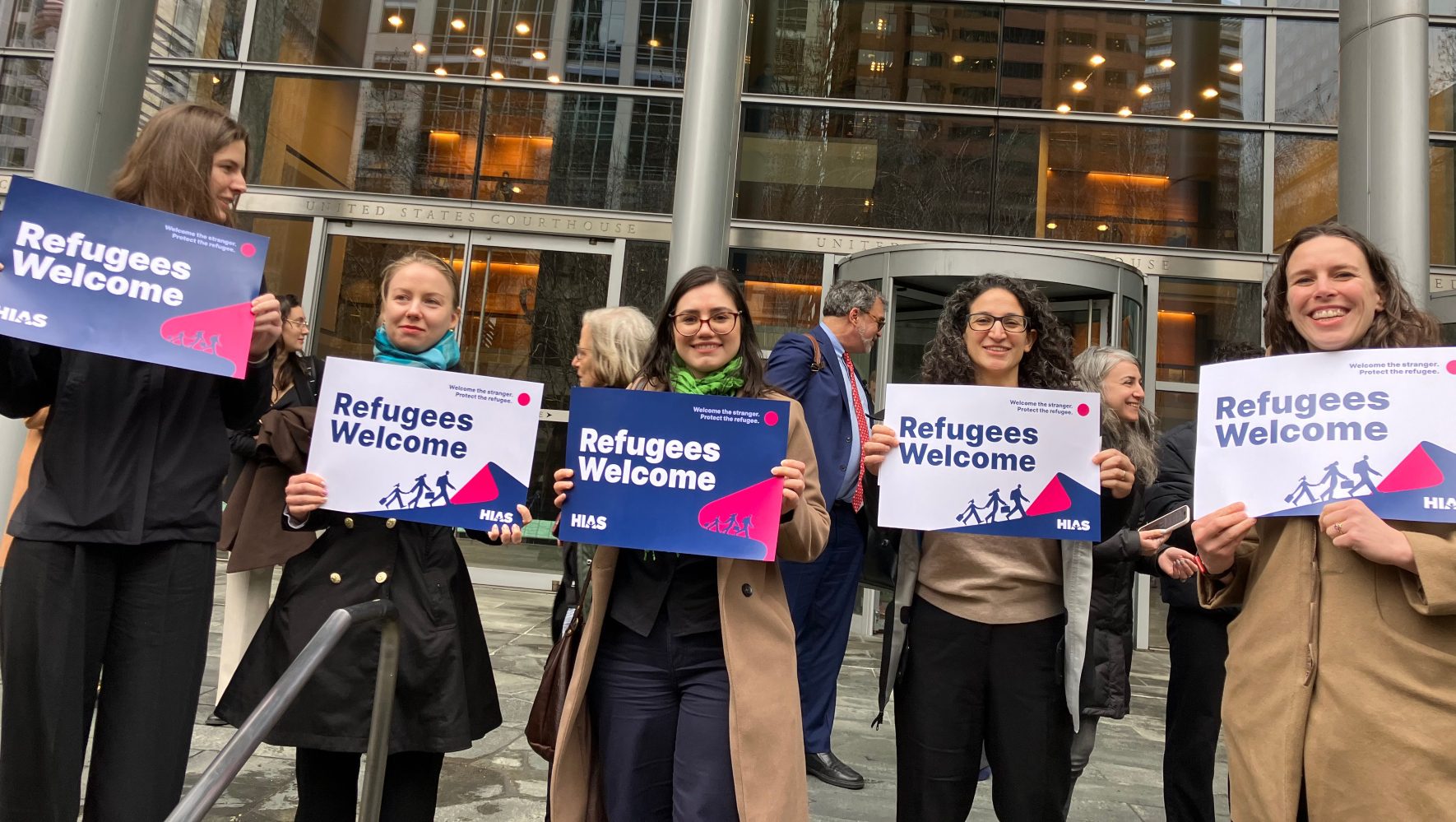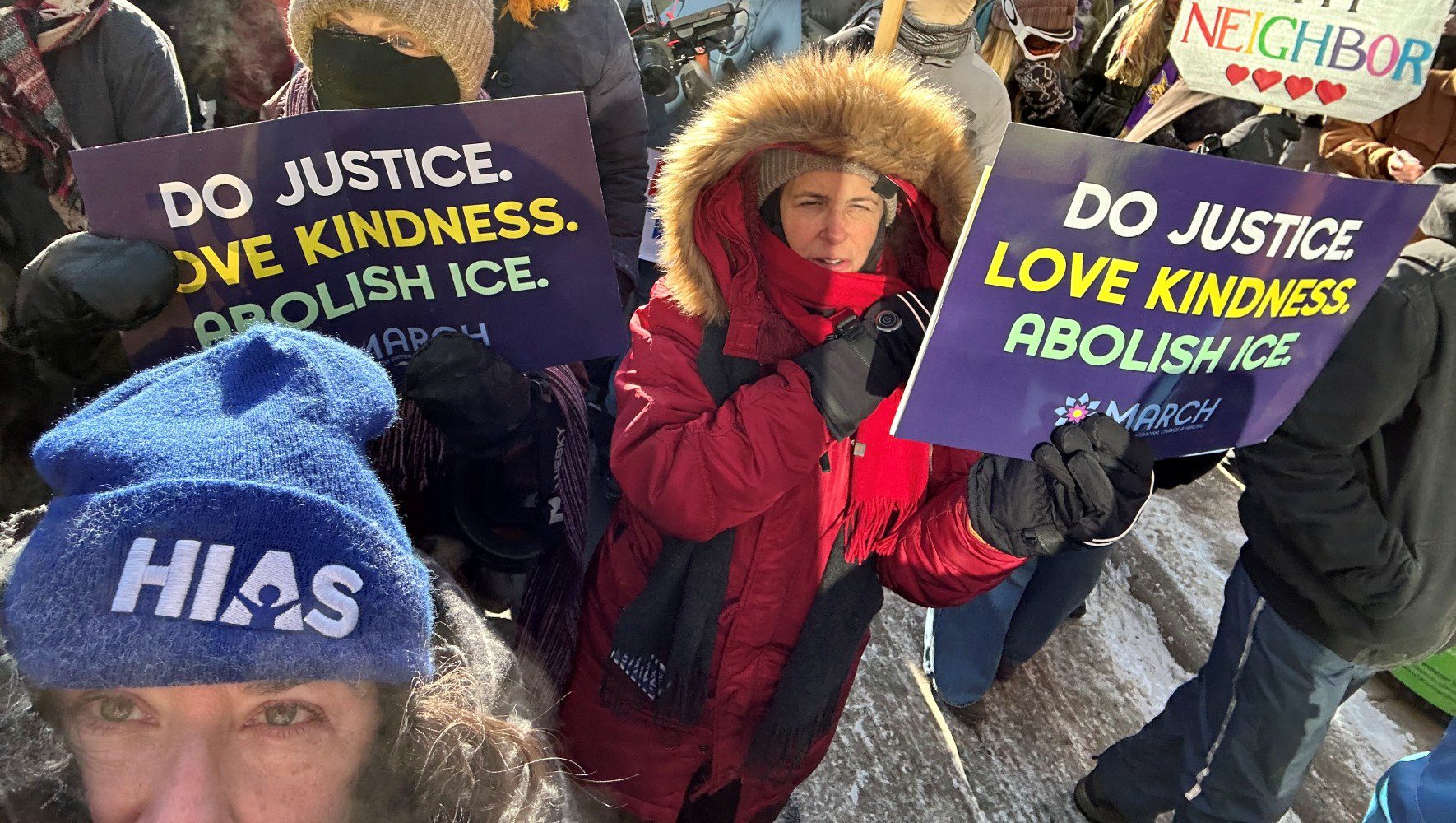Supreme Court to Hear Travel Ban Case in Fall
By Rachel Nusbaum, HIAS.org
Jun 26, 2017

A flag flies outside the U.S. Supreme Court after it was announced that the court will allow a limited version of President Donald Trump's travel ban to take effect June 26, 2017 in Washington, DC. The Supreme Court will consider the case of the president's power on immigration in the fall but in the meantime agreed to allow a limited ban on travelers from six mostly Muslim countries to take effect.
(Eric Thayer/Getty Images)
On Monday, June 26, the Supreme Court announced that it will grant the Trump Administration’s request to take up the legal challenges to the refugee and Muslim ban, including the Fourth Circuit’s decision in the HIAS and IRAP v. Trump case.
Critically, the Court has kept in place much of the lower court stay that has prevented the administration from implementing the refugee and Muslim ban Executive Order first issued in January. The bans “may not be enforced against foreign nationals who have a credible claim of a bona fide relationship with a person or entity in the United States,” until the Supreme Court hears and rules on this case, according to today’s announcement.
That’s good news for refugees, because the majority of refugees selected by the U.S. government for resettlement have family members already in the country, and for those who don’t, their ties to the U.S. based organizations, like HIAS, who begin working to get them to safety and preparing for their new lives long before they arrive in the U.S., are a clear, strong connection.
Further, all refugees undergo extensive vetting by the U.S. government, including by the Departments of State and Homeland Security, that further establish their connection with a “U.S. entity.”
HIAS, and all our partners in this legal challenge, will be vigilant in monitoring the government’s adherence to this limited decision, to ensure the government’s interpretation and implementation of this decision complies with today’s ruling. If the government applies the refugee ban in manner that is inconsistent with the Court’s ruling, we are prepared to challenge the government in court.
“We are pleased that those with family and other ties to the United States, including refugees fleeing violence and persecution, will not be subject to the arbitrary exclusion of the Executive Order,” said HIAS President and CEO Mark Hetfield. “The Fourth and Ninth Circuit courts recognized that neither the Constitution nor the laws of this country permit the President to exercise such potentially harmful authority without evidence to justify preventing refugees from finding safety and freedom here. We have confidence that, in the fall, the Supreme Court will recognize the same.”
The ruling also clarified that the ongoing refugee resettlement efforts will not be subject to the 50,000 cap for this fiscal year as proposed by the Executive Order.
The Supreme Court will hear arguments on the case in October when it takes up the substance of both the Fourth and Ninth Circuit rulings on this Executive Order.
For more on the legal challenges to this executive order, click here.



